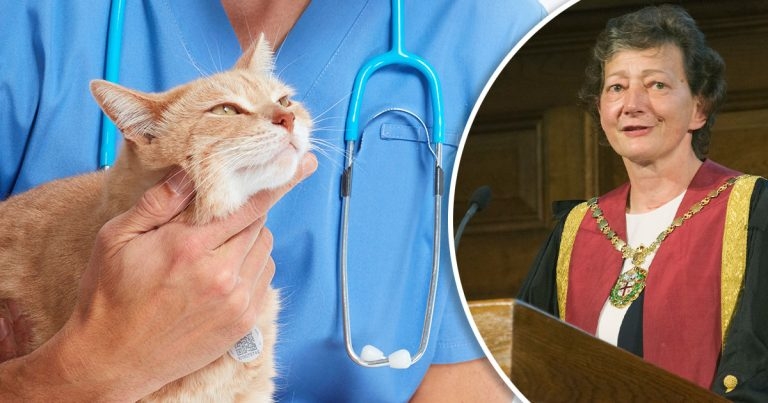25 Nov 2022
The stark message was delivered in a robust debate on proposed reforms at the London Vet Show.

Melissa Donald, RCVS president, engaged in the debate on proposed reforms to "under care" guidelines. Main image © Kurhan / Adobe Stock
A vet and academic has warned that proposed reforms to “under care” guidelines risk becoming the veterinary profession’s “Brexit moment”.
Iain Richards, a senior lecturer at the University of Central Lancashire, delivered the stark message in a robust debate on the issue during the first day of the London Vet Show.
RCVS president Melissa Donald insisted the aim of the reforms was to provide suitable guidance for the future, as she indicated that a final decision on the issue could now be made early in the new year.
But Dr Richards suggested the reforms had the potential to put the profession’s ability to regulate itself at risk if things go wrong.
He said: “I think we could be at a major moment of professional self-harm. This could be our Brexit moment.”
The debate took place just one week after an RCVS council meeting in London, where the final shape of the reforms had been expected to be finalised.
But the discussion was delayed as the college said it needed more time to analyse the results of its consultation exercises on the issue.
The consultation process itself was also extended by two weeks during the period of mourning following the death of Queen Elizabeth II in September.
Dr Donald told delegates around 2,700 responses had been received in all and the issue is due to be on the agenda when the council meets in January in Nottingham.
She acknowledged that the risks of change could not be fully eliminated, but insisted reforms to the present guidelines were also necessary.
Dr Donald said: “Under the current guidance, there are a lot of anomalies. It doesn’t work for all sectors. It doesn’t work for locums.
“Change is coming whether we want it or not. Surely, we are better to have control of the change and make sure safeguards are there.
“I want to make sure it’s fit for purpose for the next generation.”
But Dr Richards told the packed session in the BVA Congress hall at the ExCeL centre that he was “baffled” by the college’s stance, claiming the proposals were “open to challenge and massively open to abuse” in their present form.
Dr Donald rejected the suggestion, saying: “I genuinely believe in the profession’s integrity.”
However, Dr Richards retorted: “I have already seen enough evidence that there are vets who are willing to be unethical.”
Both Dr Richards and the UK’s former chief veterinary officer Nigel Gibbens advocated adoption of the vet-client-patient relationship (VCPR) concept as a means of addressing issues with the present proposals.
The idea was previously highlighted in the BVA’s written response to the college’s professional consultation, which was published in September.
Dr Richards said: “It’s an elegant solution and I go back to my bafflement as to why the college hasn’t adopted it.”
Prof Gibbens, who chaired the association’s working group on the issue, said much of the VCPR concept was already contained within the RCVS code of conduct and there were many good points within the current proposals.
But Prof Gibbens suggested the college had also taken a step too far as he urged them to take account of both common sense and the views of the profession at large.
Speaking from the floor, XLVets chief executive Andrew Curwen also asked why the college wouldn’t want to “set its members up for success”.
However, John Faulkner, principal vet for the charity PDSA, questioned what evidence there was to suggest that an initial physical examination of an animal was necessary.
He said his organisation had maintained a blended approach to treatment, even after COVID-19 restrictions were lifted, and suggested a VCPR could be established solely through remote means. He also argued that evidence from patients they had treated indicated there was no material difference between those who were seen physically and remote consultations.
Dr Donald said the pandemic had been an important period to test what was possible and argued the college was already playing catch-up against broader changes in the profession, describing it as a “travesty” that some farmers were now using multiple vets in one example.
She said while she had lived her dream of being the local vet, that aspiration was no longer shared by many new graduates entering the sector.
She also defended the legal basis on which the proposals were based – a key area of contention – insisting the college had trusted its legally trained registrar and the advice of a KC in the same way that clients trust the advice their vets give them.
RCVS council members were warned the body would be in a “precarious” position if they rejected the advice given to them by Fenella Morris KC during their previous public discussion of the subject in July.
But the BVA subsequently questioned the justification for that, accusing the college of failing to go back to “first principles” in its deliberations.